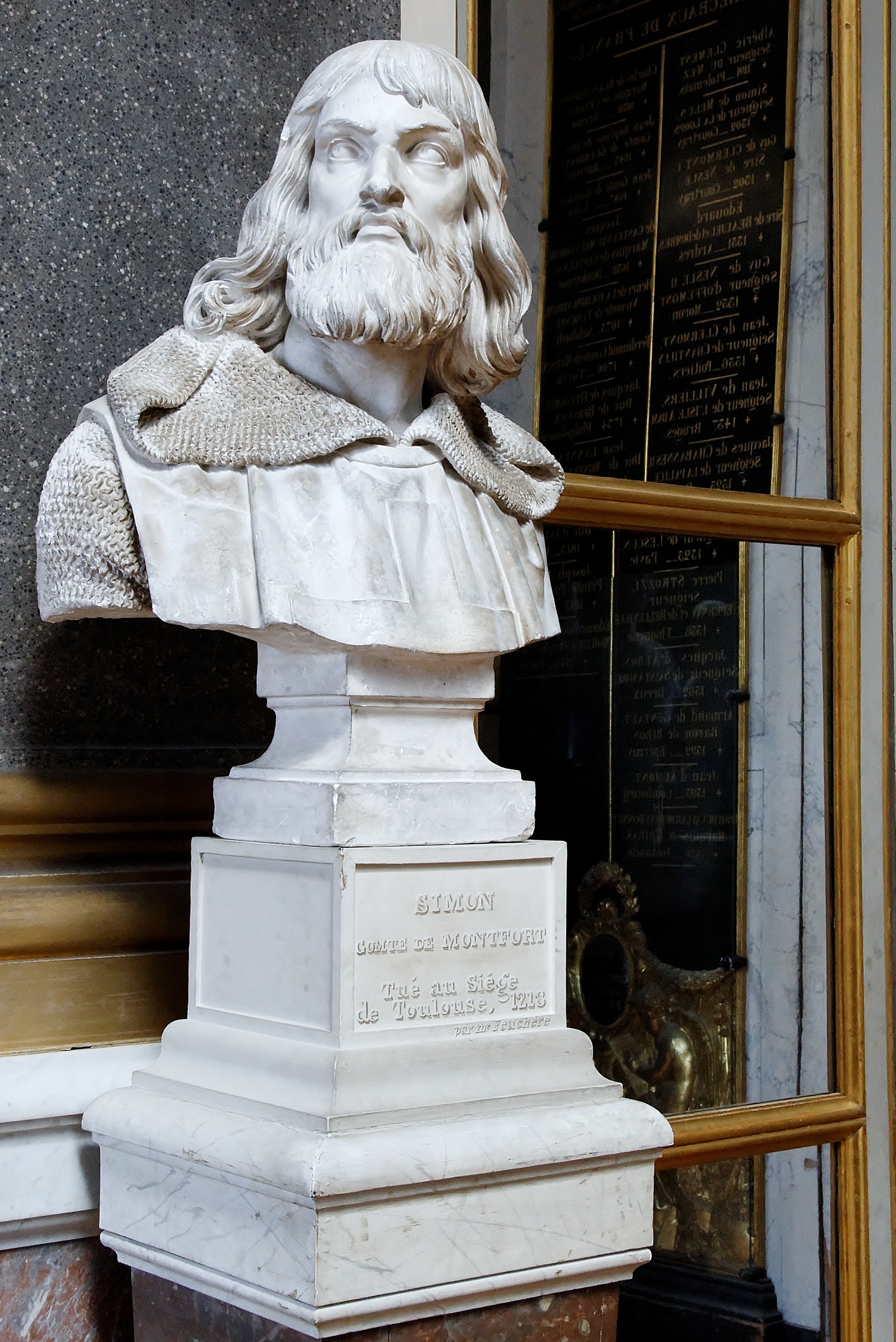That's why I was disappointed in a podcast I listened to last week on the History Network. I have had no complaints about the History network before, nor did a quick check on Google bring up any complaints of non-neutrality from other people. Their podcasts are generally well-researched and well-presented. The podcast I listened to last week was well presented, too. But it was not neutral.
 |
| Simon IV de Montfort, 5th Earl of Leicester Bust by Jean-Jacques Feuchere Photo by Ray9 Courtesy Wikimedia Commons |
| Raymond VI, Count of Toulous Photo by Guerin Nicolas Courtesy Wikimedia Commons |
This is all true enough. The question which follows is why did the Catholic Church label the Cathars to be heretics, and why was it so anxious to suppress the movement? The podcast painted a picture of the Church that was less than flattering. It displayed the Church as a fearful, power hungry organization that demanded complete control of medieval Europeans' faith and was willing to wipe out entire communities and cultures in order to maintain that control. I don't doubt that power and politics influenced the decisions of the Church to call a crusade. But they weren't the entire story.
The entire podcast was written from the point of view of the Cathars. The writer pointed out several discrepancies between Catholic and Cathar doctrine, always from the Cathar perspective. Where was Rome's rebuttal? It ought to have been included. The writer also spent time discussing the Cathars' argument that the Languedoc region was, and ought to remain, independent from Paris. Where was the French Crown's argument that Languedoc was, and had been, subject to the French King? Again, this ought to have been included.
Further, historians ought not to make judgments on the events of the past based upon the values of the present. Medieval people did not always think like 21st century people, and it does them an injustice to be treated as if they did. The podcast condemned the northern French armies for, among other things, not allowing the southern French people the freedom to worship as they pleased. When governments today fail to offer their citizens freedom of conscience, we condemn them, and I believe rightfully so. 800 years ago, however, western Europeans did not have the idea of freedom of conscience. Expecting them to behave as if they did have the idea is illogical. Judging them for it is unfair.
I have addressed two forms of bias that can appear in a historical account: failing to account for multiple points of view, and judging decisions made in the past using values of the present. A good, unbiased account will do neither. Then, after presenting the information in a clear, neutral manner, a historian will add their own analysis, thoughts, and opinions. The readers, likewise, will be able to draw their own conclusions.
No comments:
Post a Comment